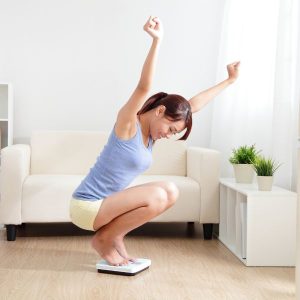 Here’s an article that’s a wonderful reminder to not only take care of the needs of others, but to take care of yourself as well. I think it’s so easy for women to fall into the trap of neglecting their own needs. I hope you find this encouraging.
Here’s an article that’s a wonderful reminder to not only take care of the needs of others, but to take care of yourself as well. I think it’s so easy for women to fall into the trap of neglecting their own needs. I hope you find this encouraging.
-Dr. Shel
From The Huffington Post, written by Agapi Stassinopoulo-Author of ‘Unbinding the Heart‘
“Treat yourself as if you were someone inexpressively dear to you.”
A few years ago a friend of mine shared this quote with me, and I think every woman should frame it and have it in front of her bathroom mirror.
I have just returned from a wonderful conference at the Grail Springs Lady Fair in Bancroft, Canada, where I spoke to a group of beautiful, soulful women. When I asked the women at the fair, “What is the main purpose of this event?” they replied: “To transform.” Wow! Unlike so many conferences women attend to network or create career opportunities, this conference had the focus of nurturing, healing and transforming. As I stood in front of these women to speak, I felt a familiar sense of knowing them, and how they were all fundamentally healers, caretakers, givers, and mothers, yet I also felt that they were looking for something for themselves.
So I asked them, “How many of you feel depleted?” Three-quarters of the room raised their hands. It seemed to me that most of these women have been taking water from the well to quench the thirst of others, yet they have forgotten to dive into the well and replenish themselves. I know what it feels like to care so deeply for the needs of others, to the point where one’s own needs can be put aside. During the event, a beautiful woman shared how she feels her life was constantly filled with overcoming challenges, taking care of her family, her work and her parents non-stop. When she would experience some kind of joy or happiness, she couldn’t fully let herself experience it because she felt guilty that her parents were in so much distress. “How do I have the right to be happy when my parents are so unhappy?” she would ask herself. She expressed her feelings of despair as if there was no end to it, but at some point in the sharing she allowed herself to release her tears, and that was the beginning of giving her something she really needed, which was to cry. As the event progressed, she found little things that she could do for herself that could reconnect her back to her original joy. “When I sing, while I am driving, I am the happiest,” she said. “Why do you only sing when you drive?” I asked her. “How about singing when you get dressed, or take your children to school?” If singing triggers your joy, then why ever stop singing? Go to work singing. Some people might think you are strange, but some people might join right in.
Like so many women, she did not know how to ask for what she wanted. She could not have her needs taken care of, because many times she, like so many of us, have not even defined our needs. There is a delicate balance between self-care and care for others. We want to be there for others, but if we are doing it to the detriment of our own wellbeing, we are doing a great disservice to who we are.
So my question to you is: Are you giving from your overflow, or are you giving from a tilted cup, overextending yourself and therefore depleting yourself?
It seems to me that this guilt is one of women’s fundamental misconceptions that directly hinder their ability to be happy. This belief has been imbedded in us, a belief that our happiness is dependent upon the happiness of others. We must absolutely give ourselves permission to rewire this wiring and affirm to ourselves, “My happiness and joy only enhance and contribute to other peoples lives, and I will honor my right to be happy, despite others pain and suffering.”
I remember recently meeting the wonderful Zainab Salbi, who works with victims of rape and war, with women who have seen indescribable pain and suffering. Zainab is a woman who absolutely exudes joy, love and enthusiasm. I asked her, “How do you sustain your joy in front of all the pain and suffering you see?” and she said, “If I let my joy die, I would be doing a great disservice to the women I am serving, because I can stand as a reminder to them to find this joy inside of themselves and I can ignite it.” I was so struck by this comment that it has stayed with me. I know so many people, men and women who fall into the trap of taking on others’ pain. In my book, Unbinding The Heart, Chapter 27, “Taking Off the Band-Aid,” I write how I remember when I was 7 years old, playing with one of my friends, and she fell and hurt her knee. She was crying so my mother put a Band-Aid on her knee, but my little friend continued to cry even more because she hated the Band-Aid. My mother turned to me and said, “Agapi, why don’t you put on a Band-Aid as well — that will make her feel better,” so I did. Years later, I realized I have developed a very bad habit of taking on the pain and suffering of others, thinking that I would help them relieve it. When people I cared for would go through something, I would go through it with them. I remember a good friend of mine went through a terrible divorce and when people would ask me, “How are you?” I wanted to say, “Really bad; I am getting a divorce,” when I wasn’t even married. At some point I realized I had to take off that Band-Aid. I had to realize that putting on that Band-Aid didn’t really help my friends at all in feeling better. Putting on the Band-Aid doesn’t help anyone; it is an illusion. Since then, I have been practicing the joy of learning to be empathetic while being conscience of my boundaries, so that others may be lifted, instead of sinking with them. That change in itself can be transformational.
At some point at the end of the workshop, we built teams that supported each other to help create and manifest what we want more of in our lives, with a commitment to make ourselves a priority. At the end I played the song by the Black Eyed Peas called “I’ve Got a Feeling.” In the middle of the tent, where the gathering was taking place, and in the most spontaneous way, we started to dance around, unbinding our hips and hearts and applauding each other while doing it. It was quite a celebration to witness each woman give herself permission to dance and have a good time and become a little more carefree and uninhibited. Isn’t it about time we realized that what the world around us needs more of is our joy, our happiness, our beauty, and our self-expression? We will never stop being the caretakers and the healers and the lovers and the mothers and going the extra mile for all those we care for, but learning to put healthy boundaries around us to know that the woman that lives inside of us requires our personal care, our own nurturing and our attention as much as we give it out there. We will then experience a new sense of aliveness, and we will harness the feminine power that is bestowed within us, our wisdom, our compassion, our ability to create from a place of grace, rather than struggle to find solutions to our challenges.
Tell us what you do to take care of you? What do you do for you, to harness your energy and bring you JOY.


















